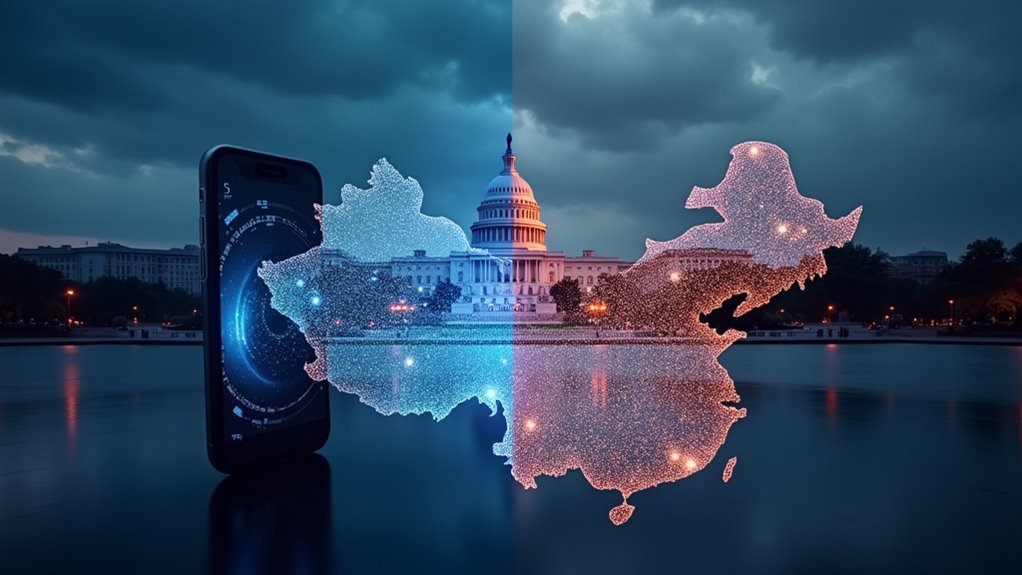ChatGPT’s tracking creates a permanent digital footprint that exceeds Orwellian levels—recording everything from innocent questions to your deepest confessions. While OpenAI uses this data to improve AI (not sell it…supposedly), the privacy trade-off is significant. Users face a modern dilemma: access cutting-edge AI or protect personal information? That dimmer switch on privacy settings won’t completely turn off the tracking. The decision between transformation and threat ultimately depends on how much digital surveillance you’re willing to accept.
While millions of users pour their deepest thoughts, work projects, and random musings into ChatGPT’s inviting text box each day, few realize just how thoroughly their digital lives are being cataloged behind the scenes. That innocent-looking interface is quietly building a robust profile of you—one conversation at a time.
ChatGPT isn’t just listening to your questions; it’s recording everything. Your account details, approximate location, IP address, browser information—all neatly packaged and stored on OpenAI’s servers. It’s like having a meticulous personal assistant who never forgets anything… including that 3 AM conversation where you asked it to help plan your ex’s birthday party. *Awkward*.
Every interaction becomes a permanent part of your digital footprint—those late-night AI confessions aren’t going anywhere.
The data collection doesn’t stop at what you explicitly share. Your usage patterns, how long you spend interacting, even the times you log in—all become part of your digital footprint. Some users opt to turn off chat history to minimize data retention and protect their privacy. If your activities trigger certain security protocols, you might encounter a security block similar to what happens on many protected websites. The collection scale of this data far exceeds what George Orwell imagined in his dystopian novel 1984, creating an inescapable surveillance web. Remember when your parents said, “Everything you do online lasts forever”? Turns out they weren’t just trying to scare you away from posting those spring break photos.
What happens to all this information? OpenAI uses it primarily to improve its models, including fine-tuning GPT-3.5, GPT-4, and whatever mind-blowing version comes next. Your confused questions about quantum physics might literally help make future AI smarter. You’re welcome, humanity.
While OpenAI promises not to sell your data to third parties without consent or use it for marketing purposes, your information isn’t completely locked away. It may be shared with affiliates or government agencies when required. That joke about building a doomsday device? Perhaps not the wisest chat topic.
Users do have some control options through account settings, but they’re limited. Think of it as having a dimmer switch rather than an off button for data collection.
For the privacy-conscious, this extensive tracking presents legitimate concerns. For others, it’s the price of admission to an AI revolution that’s transforming how we work and create. The question isn’t whether ChatGPT is tracking your life—it absolutely is—but whether that trade-off is worth it to you.









